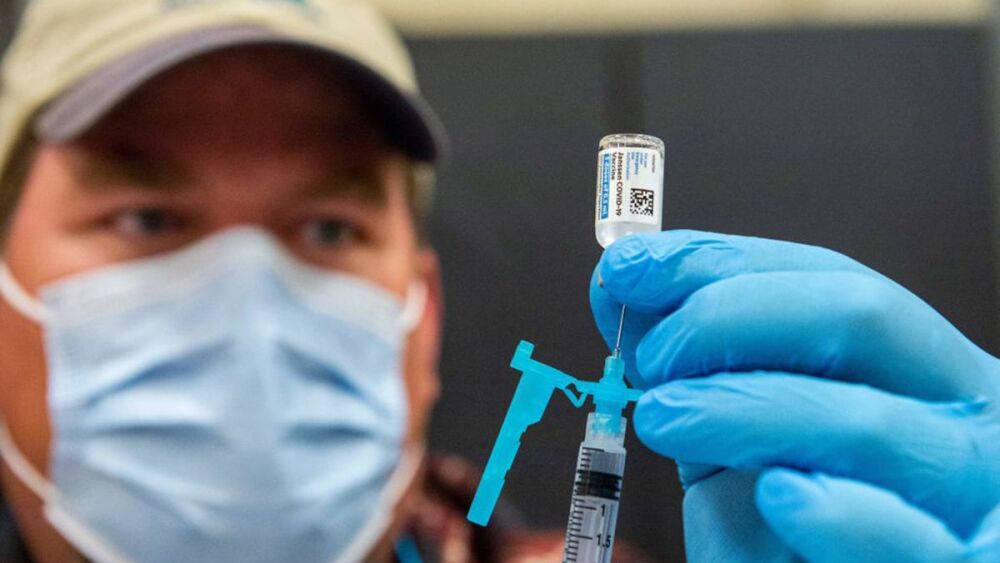Caitlin Andrews
Bangor Daily News, Maine
BANGOR, Maine — As health care workers face Maine’s new requirement to get a COVID-19 vaccine or lose their job, there is increased worry among behavioral health agencies and paramedics that it will add to long-standing staffing shortages.
Gov. Janet Mills said last week that her mandate to require immunizations by Oct. 1 at once across the state was meant to guard against staffing shortages and ensure patient safety. But in health care industries that compete with others offering wages equal or better than their own, the risk may be more real as holdouts contemplate complying or quitting.
The stakes are rising as cases surge in Maine and the U.S. almost solely among unvaccinated people. The Democratic governor’s mandate for health care workers was one of the strongest in the country with no testing alternative, though President Joe Biden’s administration said Wednesday that nursing homes will lose critical federal funding if they do not require the shot.
While it is unclear how many will leave the workforce over the requirement, opposition has been vocal. Health care workers and Republican politicians opposed to the mandate have rallied in Portland, Bangor and Augusta. A Tuesday meeting of Maine’s EMS board was pushed back to Monday after a flood of people looking to join the virtual call exceeded a 200-person cap.
At Bangor-based OHI Maine, there are 82 job openings across 380 positions. The agency providing support and direct-care services for people with intellectual disabilities and autism has had to close four group homes because it could not fill vacancies. Some staff are now practically living in the homes to care for charges with complex needs.
“I don’t know if the governor was thinking about us when she said that,” Bonnie-Jean Brooks, OHI Maine’s president, said in reference to Mills’ comments last week.
Maine has one of the highest vaccination rates in the nation and health care professionals are largely vaccinated. In hospitals, more than 80 percent were fully vaccinated as of July 31. The rates in nursing homes and intermediate care facilities for people with intellectual disabilities were considerably lower at 73 percent and 68 percent, respectively.
Portland-based MaineHealth, the state’s biggest health care provider, has seen no turnover yet because of the vaccine, a spokesperson said on Wednesday. At Brewer-based Northern Light Health, a “small” number of employees have tendered their resignations rather than get vaccinated, said Paul Bolin, the senior vice president and chief human resources officer. But some have also threatened to quit and changed their minds, he said.
“We’re trying to provide as much support and education and information to respond to questions that employees might have to minimize any folks who feel that they need to leave healthcare as a profession,” Bolin said.
The mandate was backed by groups representing hospitals, nursing homes, dentists and others. Employers are hoping education or a desire to remain in the field will make those who are considering quitting reconsider. But agencies that rely on lower-wage workers also see themselves as competing against different sectors.
In Maine, EMTs and paramedics made a median wage of $15.70 per hour in 2020, according to Department of Labor data. For home health and personal care aides, it was $13.20, which was slightly less than retail workers. Registered nurses made $33.42 on average last year.
EMS agencies in Washington County called on Mills to rescind the mandate on Tuesday, according to News Center Maine. Scarborough-based North East Mobile Health Services’s chief operating officer Butch Russell, the state’s largest ambulance service, is expecting some staff members to leave because of the mandate, though most of his staffers are vaccinated.
He said low reimbursement rates make it difficult to compete against other sectors, describing EMS as a “fixed-income business” competing against fast food restaurants increasingly paying $15 or more hourly amid a worker shortage.
At a protest over the mandate on Tuesday, Rhonda Murray, the nursing administrator at Horizons Living & Rehabilitation Center in Brunswick, said she has already gotten notices from staff but was begging them to wait and see if the state changed its policy. In the interim, her facility is already looking at decreasing their patient beds to accommodate less staff.
Elizabeth Mink, a certified nursing assistant from Warren, said she feels the vaccines were developed too quickly, though all of the ones available in the U.S. have been deemed safe and effective by the federal government. She said most of her coworkers were vaccinated, making her feel isolated. But Mink was not sure if she would get vaccinated or quit, saying she was “at a crossroads.”
And Brianna Jipson, a Bangor-area nurse who said she works at a hospital near Augusta, said she would rather be fired than get vaccinated. But she wants to see if things change before finally deciding whether to quit.
“A lot of us are angry,” she said.
___
(c)2021 the Bangor Daily News (Bangor, Maine)












